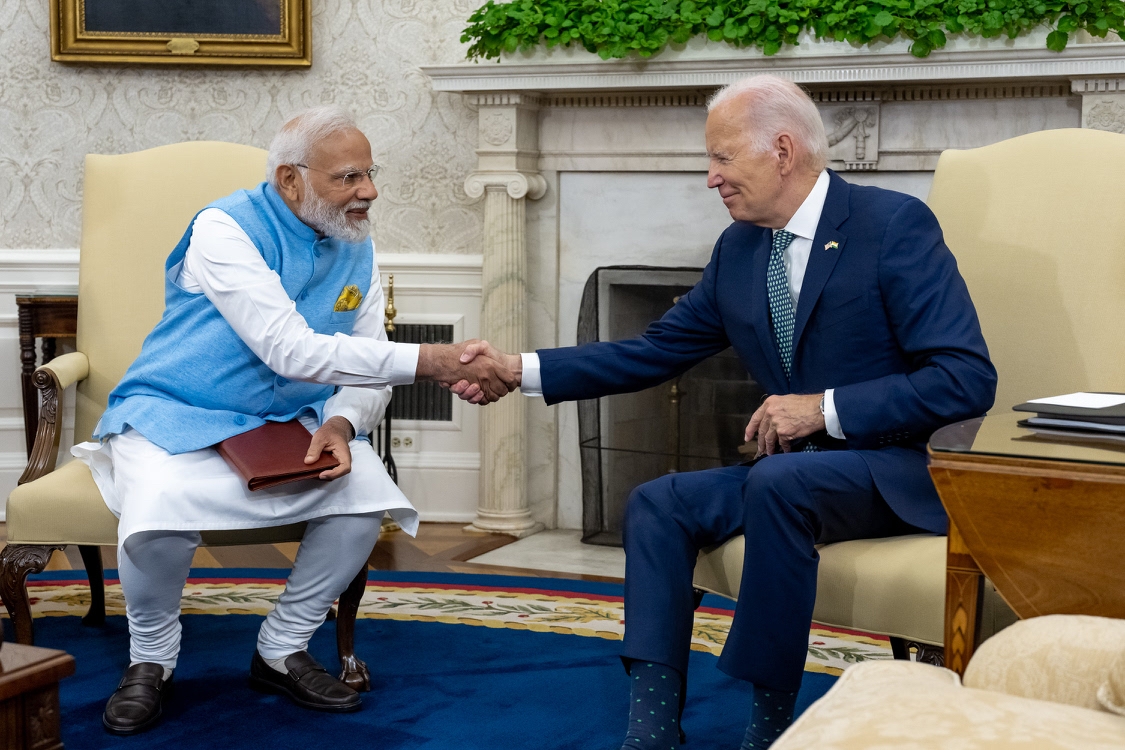
<br>”Over the last three days, we have been together continuously,” Modi said on Friday in his address to a packed auditorium of Indian-Americans who had travelled from all over the US.
Modi was at the White House for a private dinner on Wednesday, the day he arrived here from New York, and the whole of next morning, starting with a ceremonial reception, which was followed by bilateral talks and a new conference where they both took questions from reporters.
“We have had frank discussions over a whole host of issues, and I say this from experience that he is a ‘suljhe hue anubhavi neta’,” Modi said using a colloquial Hindi phrase that roughly translates to “he is a wise and experienced leader”.
The comment was greeted with loud applause.
“Bharat, American partnership ko ek nai uchai per le janey wale, wyaktigat roop se, unka bahut prayas raha hai aur mein, sarwajank roop se, unke in prayason ki sarahan karta hoon,” the Prime Minister pressed on in Hindi about his personal impression of the US President based on their many meetings in private and public over the past few days.
That would translate roughly to: “He (President Biden) has been personally responsible for driving the India-US relationship to new heights and I publicly commend him for his efforts.”
The Prime Minister is very popular in the Indian American community and he has sought to cultivate this constituency as a pillar of the broader relationship between the two countries.
But he has also used it to weigh in in presidential elections.
Prime Minister Modi had sought a second term for former President Donald Trump at a joint appearance in a rally of Indian-Americans in Houston in 2019, called the “Howdy Mody” event.
It didn’t help. Trump lost.
There are an estimated 4.5 million people in the US of Indian descent. They include this reporter, who has lived in the US for 13 years but remains an Indian citizen.
Less than a quarter of these Indian-Americans vote, but many of them donate heavily to their political party of choice, which has been the Democratic party traditionally.
But polls show some Indian Americans are gravitating towards the Republican party, although their numbers remain statistically insignificant.
Close to 70 per cent of Indian-Americans identify themselves as either Democratic or leaning-Democratic, according to polls.
And Biden has the support of most Indian-Americans, both donors and voters. But the Prime Minister’s endorsement of the US president, who is seeking a second term, could stanch the flow of Indian-Americans to the Republican Party, no matter who is the presidential nominee.
Modi is popular in the India- American community but there is no evidence he can influence their voting. He openly rooted for Trump in the 2020 election and he lost — Indian Americans voted mostly for Biden, wherever they were.
Indian-American voters have acquired outsized importance in presidential elections lately, specially in the swing states that are often decided by margins of thousand or less — such as Michigan and Wisconsin.
But there is no evidence that they look to India for guidance.
–IANS<br>yrj/ksk/






























